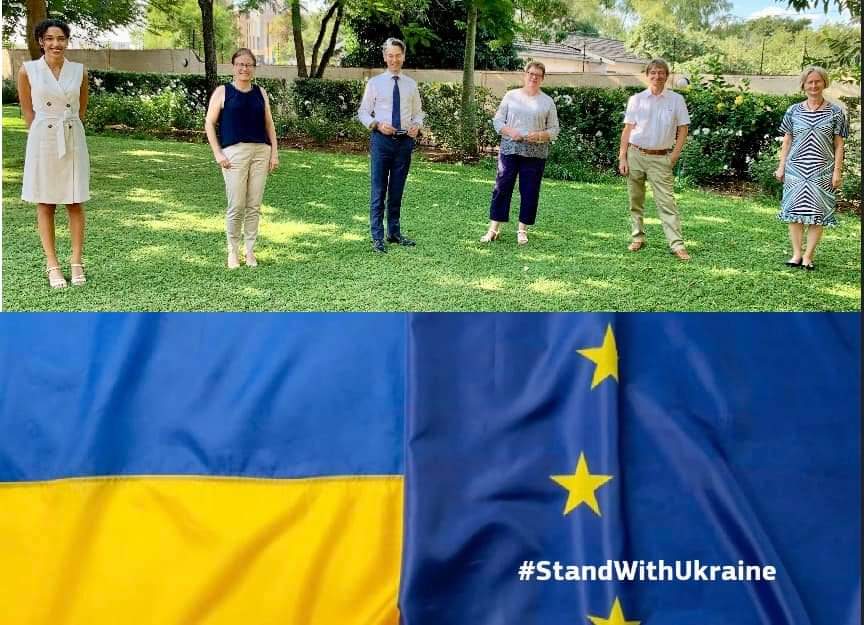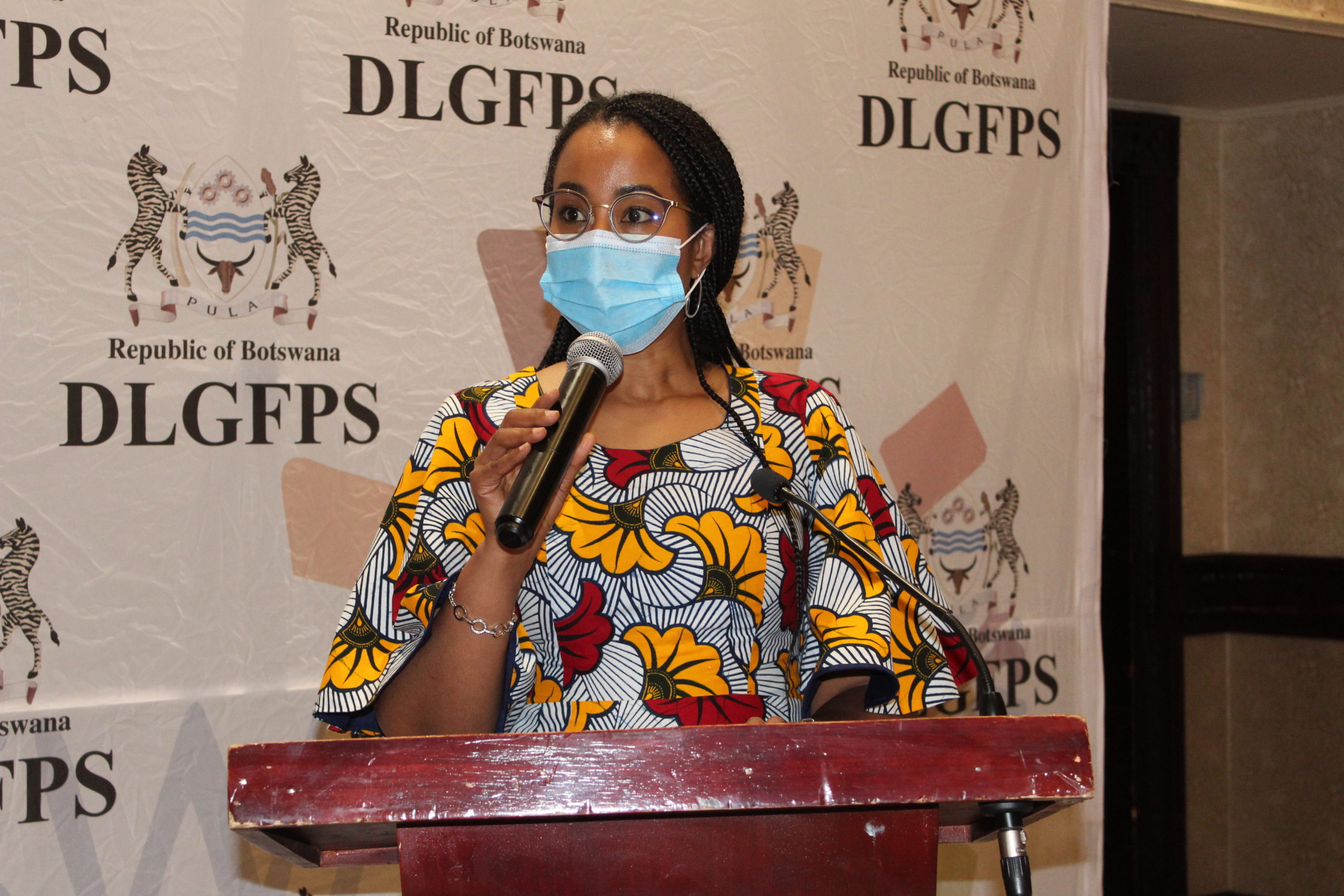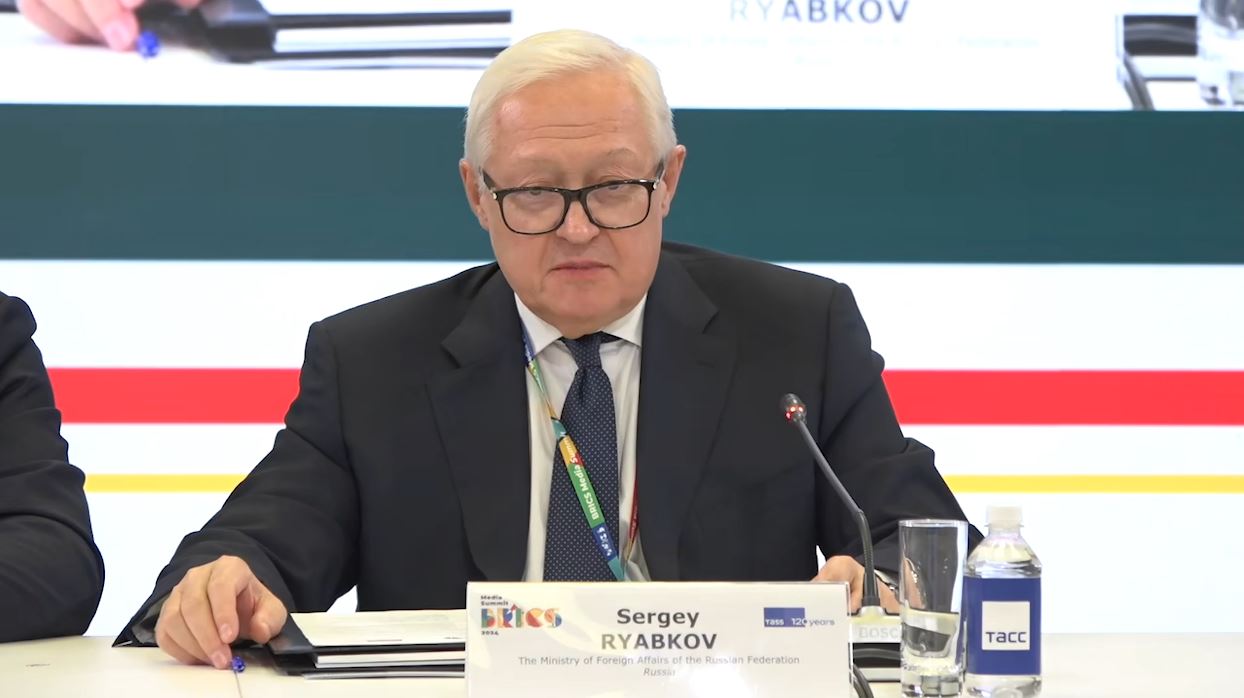
Ambassadors of France, European Union and Germany flanked by their officers
by Ambassadors of Europe in Botswana*
Since Russia invaded Ukraine in an unprecedented violation of the integrity of a sovereign state on 24th February, the EU and its member states, and their friends and allies all over the world, have started to defend the international rules-based order.
The EU has reacted to the Russian aggression with the largest sanctions package in its history. These sanctions are directed against the Russian Government, its financial sector, and its economic elites in order to undermine the Russian ability to finance its aggression against Ukraine.

None of these sanctions target the agricultural sector in
Russia. They are not linked to the declining food security we observe in some parts of the world.
The EU sanctions do not prevent imports of Russian agricultural goods, or the provision of seeds, or payment for agricultural exports from Russia.
What has caused shortages of agricultural products and price increases, is the Russian war in Ukraine. Ukrainian farmers cannot start planting crops as the most fertile parts of the country have been under military attack by Russia.
In addition, Russia is preventing Ukrainian exports from its Black Sea ports. Russia, Belarus, and China have introduced export restrictions or bans on fertilisers and their components, thus preventing farmers in other countries from getting more yield
from their crops.
It is Russia that is negatively affecting food security, not the EU.
The EU is dedicated to mitigating the consequences of the food crisis, and, together with its member states, is committed to fighting food insecurity.
On 23rd March, the Food and Agriculture Resilience Mission (FARM) Initiative was launched to safeguard food security in the most vulnerable countries.
Together with international partners like WTO, G7, and FAO we want to reinforce the resilience of food systems, first of all by getting
grains out of Ukraine and avoiding restrictions on the trade of agricultural products and secondly, by stepping up emergency relief for vulnerable populations as well as actions to support food affordability and macro-economic stability, especially in the Sahel and Chad region, at the Horn of Africa, and in Northern Africa.
Under no circumstances must agricultural products become a weapon of war used for geopolitical purposes.
Last but not least, the EU has dedicated 2.1 billion euros for sustainable agriculture to support sustainable production capacities as part and parcel of a transition to more resilient food systems.
Member states of the EU stand with Africa and continue to be reliable partners to respond jointly and effectively to the current global security challenges.
Laurence Beau, Ambassador of France
Margit Hellwig-Boette, Ambassador of the Federal Republic of Germany
Jan Sadek, Ambassador of the European Union









